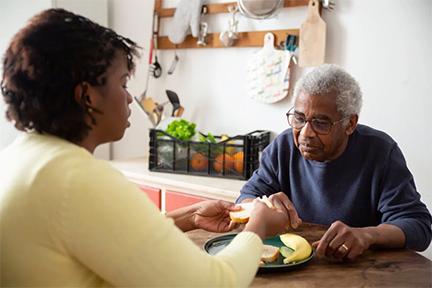
When your parents reach their senior years, you will have to choose how to take good care of them at some point. Sending them to a retirement community might seem convenient, but it’s far too costly in the long run. Most people also wouldn’t want their elders to live separately.
Especially if you have senior parents with pre-existing conditions, mobility issues, or a terminal disease, keeping them close by would be both practical and humane. It’s not as simple as it sounds considering that you will be their primary caretaker.
However, if you think it’s worth a try, then have your parents stay with you and provide them with the level of care they deserve. For that, here’s a guide to help make things less complicated.
1. Prepare a good place for them
If you have elders living with you, it’s important to provide them with a cozy and comfortable space. It’s a big plus if you have an extra room that hasn’t been used for a long time. You can convert this space into a bedroom that’s large enough for your parents to move around freely. You might also want to make sure the space is well-ventilated and fitted with accessibility features such as handrails and assistive technology.
The space should also provide a comfortable ambiance. Decorate the walls with soft blue and green shades. These color options create an inviting and relaxed atmosphere. Additionally, these color options are said to benefit elders with memory problems considering the visual stimulation they create.
2. Keep tabs on their health
It’s important to be prepared for anything, but it’s better if you keep your parents safe from possible health risks from the get-go. With this in mind, always follow your parents’ schedules for doctor’s visits and keep track of their medication intake each day. You should also bear in mind the food and beverages they’re allowed to consume. As their primary caretaker, it falls upon you to prepare meal plans that keep their immediate nutritional needs in check.
Aside from following through with their scheduled check-ups, it might also help to have your elderly parents use health monitors. In today’s healthcare market, you can find numerous brands of wearable health monitors that can detect anomalies and notify you right away so you can prevent a medical emergency before it gets worse.
3. Know who to call in case of emergencies
Even if you keep tabs on your parents’ health 24/7, nothing can prepare you for fatal accidents that could happen to them. Chemical burns, slip-and-fall injuries, and food poisoning will catch you off-guard. Unless you’re properly trained to respond to these situations, you’re better off contacting emergency services near you.
You should always keep a list of emergency numbers just in case anything could happen to your elderly parent. The list should include the contact details of their physician and the phone numbers of local emergency rooms such as Complete Care with locations across the state of Texas.
4. Give them to go outside
Seniors need opportunities to immerse themselves in the outside world and make new friends. Socialization not only improves their cognitive performance but also delays mental and physical decline.
Consider scheduling outdoor walks for your elderly parents. Look for amenities around the neighborhood such as green spaces and water features such as ponds and lakes. On top of that, you should also have dinner with them, visit the beach, and do other activities they might enjoy. Show them they’re loved and cared for by letting them leave home at least once or twice a week.
5. Get expert help if you have to
Caring for elderly parents is a commitment you wouldn’t want to neglect. Considering that you also have a job and other activities during the day, you may not have the time and energy to give them all the attention they get. Instead of making them stay in a retirement home, you can always hire a professional who can serve as their personal caregiver.
You would gain from this by saving time while still ensuring that your parents are getting the right amount of care they deserve. It’s only a matter of choosing an experienced caregiver with credentials in first aid and elder care. Find someone who can also handle medication management and other specific areas that align with your parent’s medical needs.
Endnote
Putting a premium on quality home care is the least you could do for your parents as they reach their twilight years. After all, nothing could replace the sentimentality you would get by keeping your parents close which, by itself, is the best example of love in action.
Photo by Kampus Production from Pexels
